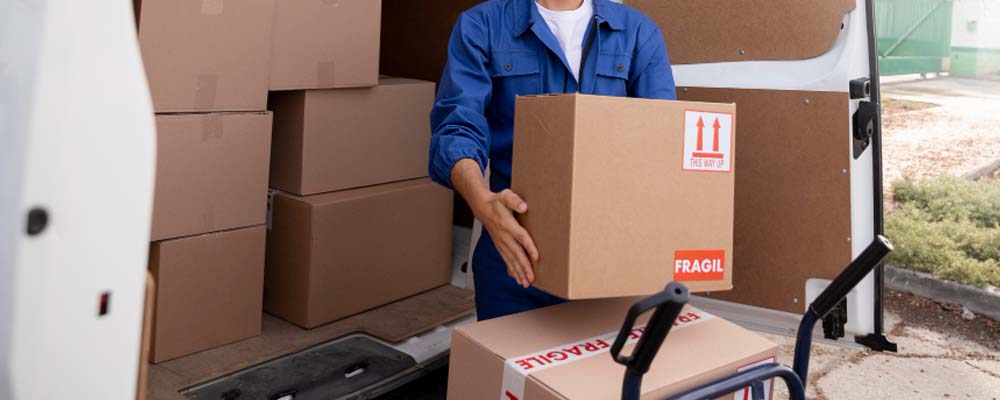
Shipping products internationally involves more than just moving goods from one place to another. When it comes to shipping to France, there are numerous factors that need to be considered, from packaging requirements to customs regulations. This blog post aims to equip you with all the necessary information to make your shipping experience as seamless as possible. We’ll cover key considerations, packaging rules, restricted products, cost estimates, transit times, customs regulations, and important holidays in France that may affect your shipping schedule.
Key Considerations for Shipping to France
When planning to ship to France, several key considerations must be kept in mind to ensure a smooth process. First and foremost, understanding the destination and knowing the specific address details is crucial. This includes the postal code, city, and any additional location-specific information that may be required.
Next, it is important to be aware of the shipping options available. Depending on the type of product being shipped, different modes of transportation may be more suitable. Air freight is generally faster but more expensive, while sea freight is cost-effective but takes longer. Selecting the right option based on time constraints and budget is vital.
Lastly, understanding the potential risks and challenges associated with international shipping is essential. These may include delays due to customs inspections, unexpected costs, and regulatory changes. Being prepared for these challenges and having contingency plans in place can help mitigate their impact.
 Rules for Packaging Your Parcel
Rules for Packaging Your Parcel
Proper packaging is crucial for ensuring that your goods arrive in France undamaged and in compliance with regulations. When shipping to France, it is important to use high-quality materials that can withstand the rigors of international transit. Sturdy boxes, bubble wrap, and packing peanuts are some of the commonly used materials.
Additionally, labeling the package correctly is essential. Include all necessary information such as the sender’s and recipient’s addresses, contact numbers, and a detailed list of contents. This helps avoid any confusion and ensures that the package reaches its destination without issues.
Another important aspect to consider is adhering to the weight and size limitations set by the shipping carrier. Exceeding these limits may lead to additional charges or delays. It is also advisable to check if there are any specific packaging requirements for the type of product being shipped, as certain items may require special handling.
Products That Cannot Be Exported to France
- Weapons and ammunition
- Hazardous materials and chemicals
- Certain pharmaceuticals and medical products
- Counterfeit goods
- Pornographic material
- Specific agricultural products and plants
- Animal products without proper documentation
- Cultural artifacts and antiques without proper permits
Costs of Shipping to France
The cost of shipping to France can vary significantly based on several factors. These factors include the weight and dimensions of the package, the shipping method chosen, and any additional services required such as insurance or expedited delivery.
Air freight is generally more expensive compared to sea freight, but it offers faster delivery times. For urgent shipments, air freight may be the preferred option, despite the higher cost. On the other hand, sea freight is more economical and suitable for larger shipments that are not time-sensitive.
It is also important to take into account additional costs such as customs duties and taxes. These costs can vary depending on the type of product being shipped and its value. Working with a knowledgeable customs broker can help ensure accurate calculation of these costs and avoid any surprises upon arrival in France.
How Long Does It Take to Get to France?
 The transit time for shipping to France depends on the chosen shipping method and the origin of the shipment. Air freight typically takes between 2 to 5 business days for most major cities, while sea freight can take anywhere from 2 to 6 weeks.
The transit time for shipping to France depends on the chosen shipping method and the origin of the shipment. Air freight typically takes between 2 to 5 business days for most major cities, while sea freight can take anywhere from 2 to 6 weeks.
For time-sensitive shipments, express courier services are available that can deliver packages within 1 to 3 business days. However, these services come at a premium cost. It is important to plan ahead and consider the urgency of the shipment when selecting the shipping method.
Customs clearance times can also impact the overall transit time. Delays at customs can occur due to incomplete documentation or inspections. Ensuring all required paperwork is completed accurately and working with experienced logistics providers or freight forwarders can help minimize these delays.
Customs Regulations in France
Understanding the customs regulations in France is essential for a smooth shipping experience. All goods entering France must go through customs clearance, where they are inspected and assessed for duties and taxes.
It is important to provide accurate and detailed documentation to avoid any delays. This includes a commercial invoice, packing list, and any necessary certificates or permits for specific products. Inaccurate or incomplete documentation can result in customs holding the shipment until the issues are resolved.
Certain products may be subject to additional regulations and requirements. For example, food products must comply with health and safety standards, while electronics may require specific certifications. Researching and understanding these requirements beforehand can help streamline the customs process.
France Holidays to Keep in Mind
When planning your shipments to France, it is important to be aware of the national holidays and public holidays that may affect the delivery schedule. During these holidays, customs offices and logistics providers may be closed or have limited operations, leading to potential delays.
Some of the key holidays in France include:
- New Year’s Day (January 1)
- Easter Monday (date varies)
- Labor Day (May 1)
- Bastille Day (July 14)
- Assumption of Mary (August 15)
- All Saints’ Day (November 1)
- Christmas Day (December 25)
Planning your shipments around these dates and allowing for extra transit time can help ensure timely delivery.
 Conclusion
Conclusion
Shipping to France involves navigating a complex set of regulations, packaging requirements, and logistical considerations. By understanding and addressing these factors, you can ensure a smooth and efficient shipping process. Proper packaging, accurate documentation, and awareness of customs regulations are key to avoiding delays and additional costs. Additionally, considering the transit time and planning around holidays can help ensure timely delivery.
For those looking to streamline their shipping process, working with experienced logistics providers, freight forwarders and customs brokers can provide valuable expertise and support. If you have any questions or need assistance, feel free to contact our team. We are here to help you successfully ship your goods to France.
Ready to simplify your shipping process? Contact Us today and experience the benefits of seamless international shipping.




 Rules for Packaging Your Parcel
Rules for Packaging Your Parcel Conclusion
Conclusion



